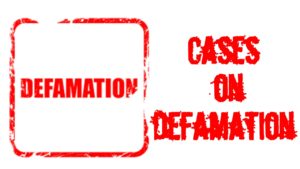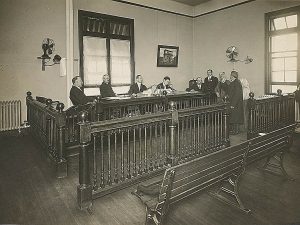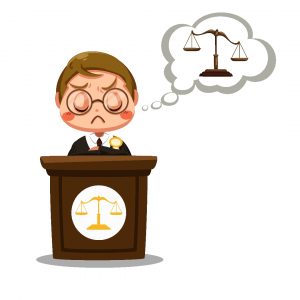The defense of qualified privilege in defamation was the subject matter of the case of Nigeria Television Authority (NTA) v. Ebenezer Babatope (1996) 4 NWLR (Pt. 440) 75. In this case the Court of appeal explicitly explained the instances where it is possible for a defendant to use the defense of qualified privilege where there is an alleged defamation. More so, the court pointed out when malice may or may not destroy the defense of qualified privilege in defamation. The facts, issues and decision of the Court in Nigeria Television Authority (NTA) v Ebenezer Babatope are given below:

Also read:
- Dickson Igbokwe v. University college hospital management board (Nigerian case on the principle of res ipsa loquitur)
- Awolowo v. Federal ministry of internal affairs
- Fundamental human right in the 1999 constitution of Nigeria
Facts of Nigeria Television Authority (NTA) v Ebenezer Babatope:
The facts of the case of Nigeria Television Authority (NTA) v Ebenezer Babatope are as follows:
The National director of Organization of the Unity party of Nigeria (UPN) in the person of Chief Daboh (respondent), sued the appellant (Nigeria television Authority) at the High Court of Lagos on the grounds that the broadcast made on the appellant’s network on the 1st of September, 1982 damaged his reputation and mitigated his fame. The broadcast was as follows:
“ANTICORRUPTION CRUSADE, CHIEF GODWIN DABOH HAS RESIGNED HIS MEMBERSHIP OF THE UNITY PARTY OF NIGERIA U.P.N
Addressing newsmen in Lagos today, Chief Daboh said his resignation was due to the fact that the president of the party, Chief Obafemi Awolowo, failed to investigate an allegation of corruption leveled against the party’s director of organization, Mr. Ebenezer Babatope by some members of undo state house of assembly. Among the allegation, Chief Daboh said, was that Mr. Babatope collected two thousand five hundred naira from each of the five UPN Governors to aid the remuneration for the 1083 election. Chief Daboh also said that Mr. Babatope was further accused of acquiring five hundred thousand naira landed property since he became the U.P.N’s director of Organization. According to our correspondent, Chief Daboh said Although Mr. Babatope denied these allegations he expected chief Awolowo to institute an inquiry to investigate them.”

At the trial court, the appellant admitted that they made this broadcast but contended that is was not made maliciously; pointing out that it was fair comment on a matter of public interest. They also argued that it was its legal, constitutional and social duty to broadcast or publish the words complained of for the benefit of the public. On the other hand, the respondent said that the publication mitigated his reputation. Some witnesses even gave evidence for the respondent, saying that after they heard the broadcast, their estimation for the respondent went down considerably. The trial court eventually held that the defenses pleaded by the appellant did not avail it. Aggrieved with this judgment, the appellant appealed to the court of appeal, which in its determination of appeal considered the provisions of section 9(4) and paragraph 11 parts 3 of the schedule to the defamation law of Lagos state.

Issues raised in Nigeria Television Authority (NTA) v Ebenezer Babatope
Issue 1: Whether the trial Judge was wrong in holding that the words complained of are defamatory of the respondent and that the defenses raised by the appellant are not available to it.
Issue 2: Whether the damage awarded to the respondent by the trial court was excessive having regard to the circumstances.
Decision of the Court
After considering all the facts of the case, the court of appeal (by majority of 2 to 1) allowed the appeal and held that; In this case, Nigerians are entitled to know what goes on in a party organization. It is their duty to be so informed for the people did not and cannot be said to have taken the political parties as secret organization whose activities when sordid should not be disclosed to them. Some party men could only have known of what happened by the publication. In that case, it is the moral duty of Nigerians to be informed as it is their duty to receive and known such matters.
In the dissenting judgment of Ayoola J.C.A, he stated thus: In my opinion, to broaden the concept of “interest” in order to give protection to defamatory publication to the public at large made of and concerning persons in public office would unfairly expose the reputation of such persons to awesome danger which the safeguard of actual malice would be inapplicable of warding of. Besides, a wide interpretation of “interest” would blur the distinction between the defense of fair comment and qualified privileged. The defense of qualified privileged protects publication made on occasion in which the law regard that it is good of social that statements though defamatory should, barring actual malice, be made with impunity, but such occasions have over the year been sufficiently denied and do not include the present occasion, in my view.” Judgment was entered for the appellant.

Also read: Are lawyers liars? See why lawyers are called liars here
Cases referred to in the judgment:
- Bakere v. Ibrahim (1973) 6 SC. 205
- Dumbo v. Idugboe (1983) 1 SCNLR 29
- Okolo v. Midwest Newspaper Corporation (1977) 1 SC 33
- Sketch Publishing Company Ltd v. Ajagbemokeferi (1989) 1 NWLR (Pt. 100) 678
- Adam v. Ward (1917) A.C 309
- Smith v. Streatfeild (1913) 3K.B 764
- Lewis v. Daily telegraph Ltd (1963) 2 All ER 151

Edeh Samuel Chukwuemeka, ACMC, is a lawyer and a certified mediator/conciliator in Nigeria. He is also a developer with knowledge in various programming languages. Samuel is determined to leverage his skills in technology, SEO, and legal practice to revolutionize the legal profession worldwide by creating web and mobile applications that simplify legal research. Sam is also passionate about educating and providing valuable information to people.